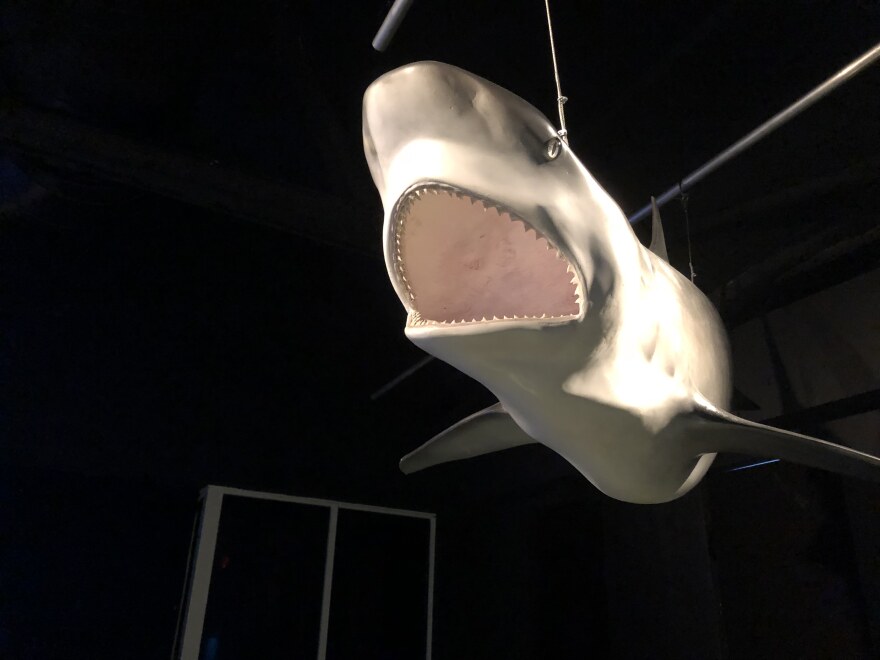PORTLAND, Maine — An exhibit that participants can really sink their teeth into has come to town.
The Portland Science Center recently opened its doors to “Planet Shark: Predator or Prey,” which traces the evolution of sharks and highlights their significance in the ecosystem.
Joe Gold, who heads the Portland Science Center, says he’s pleased to bring the exhibition all the way from Australia. He says people are generally enamored with sharks and this topic is both exciting and timely.
“Sharks capture the imagination of the public,” Gold says. “This exhibition comes with some interesting facts about sharks, that they’ve roamed the Earth for 450 million years, and that they’re now an endangered species.”

“Planet Shark: Predator or Prey” was created by Grande Exhibitions, an Australia-based team, with assistance from experts in the fields of sharks, aquariums and ocean cinematography.
“We’re a maritime community here and sharks are exciting, you know, they’re charismatic,” says Dr. James Sulikowski, a professor of marine science at the University of New England who is known to many as Dr. Shark. “For me and my research, it’s exciting to see all the great information that this exhibit has and how its dispelling a lot of myths.”
Sulikowski has spent more than 25 years working with sharks and other cartilaginous and bony fish. He says cultural misrepresentations in movies like “Jaws” have left sharks unjustly vilified and have perpetuated dangerous misconceptions.

“One of the biggest misconceptions of sharks is that they’re human eaters and they’re out to get us. And that’s farthest from the truth,” he says. “They really don’t want anything to do with us. We don’t look like what they eat. We don’t taste like what they eat. And in fact, when they do interact with us, it’s often accidental.”
The exhibit aims to raise awareness about these misconceptions which, in conjunction with fishing pressures, have pushed some shark populations to the brink of extinction. It also features full-scale shark models, fossils up to 370 million years old and details about conservation efforts.
The exhibit will be at the Portland Science Center until mid-May.
This story was originally published Feb. 5, 2018 at 5:14 p.m. ET.


